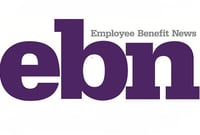Consolidation Corner
-
Blog
- 401k Cash Outs
- 401k Consolidation
- 401k Plan Termination
- America's Mobile Workforce
- Assisted Roll-in
- Auto Enrollment
- Auto Portability
- Auto Portability Simulation
- Automatic Roll-In
- Automatic Rollover
- Automatic Rollovers
- Boston Research Technologies
- CARES act
- Common Mistakes
- DIY Roll-In
- DOL Advisory Opinion
- EBRI
- Employee Benefit News
- ERISA Advisory Council
- Financial Services Roundtable
- Financial Wellness
- How-To
- In-Plan Consolidation
- Leakage
- Lifetime Plan Participation
- Lost Participants
- Managed Portability
- Mandatory Distributions
- MarketWatch
- Missing Participant IRA
- Missing Participants
- National Retirement Savings Cash Out Clock
- Participant Transition Management
- PLANSPONSOR
- Portability Services Network
- PSCA
- Public Policy
- RCH Services
- Retirement Income
- Retirement Plan Portability
- retirement research
- Retirement Savings Consolidation
- Retirement Savings Portability
- Roll-In
- Safe Harbor IRA
- Saver's Match
- Security
- Small Accounts
- Stale Dated Checks
- Synthetic Tenure
- Uncashed Check Services
- Uncashed Distribution Checks
- Video
- Webcast
- What is a Missing Participant?
Consolidation Corner Blog
Consolidation Corner is the Retirement Clearinghouse (RCH) blog, and features the latest articles and bylines from our executives, addressing important retirement savings portability topics.
Four Retirement Initiatives Vital to Closing the Racial Wealth Gap
 Policymakers and stakeholders in America’s defined contribution system have made important progress in advancing initiatives that could help to close the large racial wealth gap. While much of the groundwork has been laid, it will ultimately fall to retirement plan sponsors to make the difference by supporting four key retirement initiatives that will generate increased wealth and enhance retirement security for millions of America’s minority workers.
Policymakers and stakeholders in America’s defined contribution system have made important progress in advancing initiatives that could help to close the large racial wealth gap. While much of the groundwork has been laid, it will ultimately fall to retirement plan sponsors to make the difference by supporting four key retirement initiatives that will generate increased wealth and enhance retirement security for millions of America’s minority workers.
Four Key Findings from the New Auto Portability Simulation
 On the heels of the 11/7/23 announcement by the Portability Services Network that the industry-led consortium has launched its digital auto portability solution powered by Retirement Clearinghouse (RCH), RCH has made available the results from a new version of their Auto Portability Simulation (APS), a discrete event simulation that models the adoption of auto portability within America’s defined contribution system, over a 40-year period.
On the heels of the 11/7/23 announcement by the Portability Services Network that the industry-led consortium has launched its digital auto portability solution powered by Retirement Clearinghouse (RCH), RCH has made available the results from a new version of their Auto Portability Simulation (APS), a discrete event simulation that models the adoption of auto portability within America’s defined contribution system, over a 40-year period.
Auto Portability is Poised to Make an Even Bigger Impact in 2024
 On the last day of 2023, a key provision of the SECURE 2.0 Act—increasing the limit on small 401(k) accounts subject to automatic rollovers into safe-harbor IRAs from $5,000 to $7,000—went into effect.
On the last day of 2023, a key provision of the SECURE 2.0 Act—increasing the limit on small 401(k) accounts subject to automatic rollovers into safe-harbor IRAs from $5,000 to $7,000—went into effect.
Auto Portability: It’s About the Participants
 It’s sometimes easy to forget a basic tenet about auto portability.
It’s sometimes easy to forget a basic tenet about auto portability.
Auto portability is about the participants.
And not just any participants. Auto portability is about the participants who truly need it, and – according to multiple surveys – have expressed a strong preference for it.
No One is Coming to Save You From Missing Participants
 In horror movies, embattled humans facing a zombie apocalypse eventually realize that no one is coming to save them and must take decisive action to save themselves from oblivion.
In horror movies, embattled humans facing a zombie apocalypse eventually realize that no one is coming to save them and must take decisive action to save themselves from oblivion.
There’s a lesson here for plan sponsors who must confront the problem of locating missing participants.
In the near-term, there’s likely nothing that will spare plan sponsors from addressing the missing participant problem head-on. In the face of uncertainty, they must take decisive action to avoid being overwhelmed, including implementing effective, common-sense search practices, and pairing those search practices with other actions that will minimize the incidence of missing participants over time.
A Perfect Storm is Brewing—But Automated Portability Could Defuse It
Focus Shifts to Plan Sponsors as Portability Network Set to Go Live
 When the Portability Services Network (PSN) goes live at the beginning of the fourth quarter of 2023, the focus of attention for auto portability will shift from the industry-led network of service providers to the leading plan sponsors who will begin adopting the new plan feature.
When the Portability Services Network (PSN) goes live at the beginning of the fourth quarter of 2023, the focus of attention for auto portability will shift from the industry-led network of service providers to the leading plan sponsors who will begin adopting the new plan feature.
As PSN operations commence, and the automated plan-to-plan consolidation of small balances begins, a familiar industry adoption pattern will emerge – where innovators within the plan sponsor community lead the charge and are quickly followed by others.
The Future is Brighter for Small-Balance Retirement Accounts
 While small-balance retirement savings accounts have fared poorly in the past, their future has never looked brighter. Real progress is being made in reducing their numbers while simultaneously preserving and consolidating their savings, vs. previous “solutions” that encouraged them to cash out or exiled them to dead-end safe harbor IRAs.
While small-balance retirement savings accounts have fared poorly in the past, their future has never looked brighter. Real progress is being made in reducing their numbers while simultaneously preserving and consolidating their savings, vs. previous “solutions” that encouraged them to cash out or exiled them to dead-end safe harbor IRAs.
The New Urgency for Mitigating 401(k) Account Cash-Outs
 Americans’ lack of retirement preparedness has long been an area of concern for our nation. But findings in a recent study underscore that, despite all of the media articles offering tips for how to save more for retirement, many Americans are still making a self-destructive decision that can leave them with less when they retire.
Americans’ lack of retirement preparedness has long been an area of concern for our nation. But findings in a recent study underscore that, despite all of the media articles offering tips for how to save more for retirement, many Americans are still making a self-destructive decision that can leave them with less when they retire.
The 401(k) “House-Cleaning” to Come
 The increase in the automatic rollover threshold from $5,000 to $7,000, as provided for in section 304 of the SECURE 2.0 legislation, will become effective for mandatory distributions made after December 31, 2023.
The increase in the automatic rollover threshold from $5,000 to $7,000, as provided for in section 304 of the SECURE 2.0 legislation, will become effective for mandatory distributions made after December 31, 2023.
What will be the impact of these provisions, if fully embraced by plan sponsors? One thing is certain – on both a one-time and ongoing basis, far more terminated participants will be subject to the automatic rollover provisions of their former-employers’ plans.
-
Blog
- 401k Cash Outs
- 401k Consolidation
- 401k Plan Termination
- America's Mobile Workforce
- Assisted Roll-in
- Auto Enrollment
- Auto Portability
- Auto Portability Simulation
- Automatic Roll-In
- Automatic Rollover
- Automatic Rollovers
- Boston Research Technologies
- CARES act
- Common Mistakes
- DIY Roll-In
- DOL Advisory Opinion
- EBRI
- Employee Benefit News
- ERISA Advisory Council
- Financial Services Roundtable
- Financial Wellness
- How-To
- In-Plan Consolidation
- Leakage
- Lifetime Plan Participation
- Lost Participants
- Managed Portability
- Mandatory Distributions
- MarketWatch
- Missing Participant IRA
- Missing Participants
- National Retirement Savings Cash Out Clock
- Participant Transition Management
- PLANSPONSOR
- Portability Services Network
- PSCA
- Public Policy
- RCH Services
- Retirement Income
- Retirement Plan Portability
- retirement research
- Retirement Savings Consolidation
- Retirement Savings Portability
- Roll-In
- Safe Harbor IRA
- Saver's Match
- Security
- Small Accounts
- Stale Dated Checks
- Synthetic Tenure
- Uncashed Check Services
- Uncashed Distribution Checks
- Video
- Webcast
- What is a Missing Participant?
